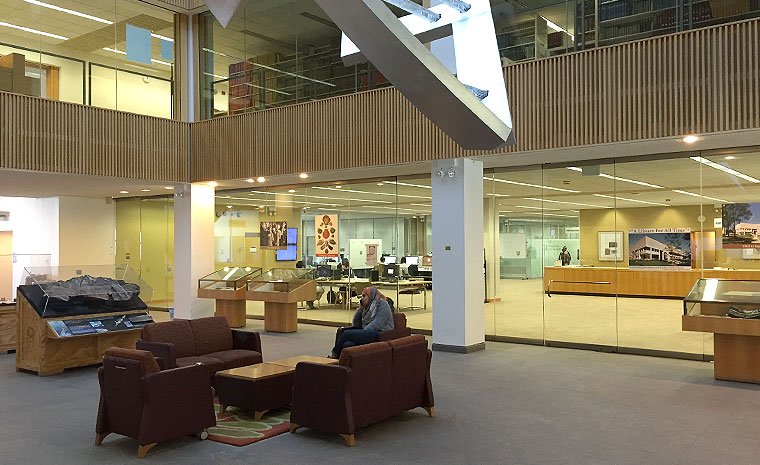Innovative Services
Pioneering innovative uses of technology and user services are hallmarks of the John Crerar Library. In 1912, Crerar was one of the first libraries in the United States to offer a photoduplication service, providing copies of material from the collection to researchers outside Chicago in lieu of lending material. Established in 1946, the Research Information Service (RIS) offered intensive expert research assistance to patrons. It was reportedly the first fee-based research service of its kind in the country. The Corporate Members Program was established in 1951 to provide companies access to research materials and services. In 1952, Crerar became one of the first libraries in the U.S. to use a Teletype machine. The National Translation Center, first supported by the Special Libraries Association and the National Science Foundation, and later by the Library of Congress, was based in the John Crerar Library from 1953 to 1993 and was the central location for technical translations in the United States.
In 1968, the Crerar Library became the first midwestern Regional Medical Library under a grant funded program of the National Library of Medicine. The Crerar Library continued to fill this role until 1979, providing document delivery services to a six-state network of health sciences libraries in Indiana, Illinois, Iowa, Minnesota, North Dakota and Wisconsin. Medical information workshops and training programs were offered, as well as online searching services.
Today, the Crerar Library continues its tradition of providing high-tech services tailored to meet the needs of our users. The Library has partnered with the Research Computing Center to equip the Kathleen A. Zar Room for 3D data visualization and interactive touch technology. The Computer Sciences Instructional Laboratory (CSIL) is located in Crerar supporting teaching and learning opportunities for students in the College and the Department of Computer Science. Crerar's expert staff members provide point-of-need reference service, in-depth research consultations, and instruction sessions using the latest online resources and information management tools. In collaboration with faculty, staff, and other specialists from across campus and around the world, they contribute to 21st-century initiatives such as the Google Book digitization project and the Sloan Digital Sky Survey.
Brochure publicizing the services of the John Crerar Library, circa 1960. Records of the John Crerar Library, Box 180, Folder 1, Special Collections Research Center, University of Chicago Library.

May 1950. Records of the John Crerar Library, Box 180, Folder 1, Special Collections Research Center, University of Chicago Library.

Research Information Service, [1949-1955]. Records of the John Crerar Library, Box 180, Folder 3, Special Collections Research Center, University of Chicago Library.



